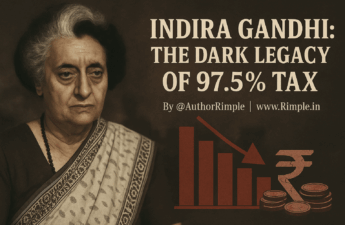In a move that could only be described as a masterclass in economic delusion, former President Donald Trump has once again floated the idea of manufacturing Apple iPhones entirely in the United States. It’s a soundbite that sounds patriotic—until you crack open the numbers and realize it’s a recipe for disaster. Forcing Apple to ditch its finely tuned global supply chain for a “Made in USA” sticker would not only tank the economy but also slap every American consumer with a $5,000 iPhone price tag—or higher. This isn’t leadership; it’s a clown show, and every U.S. citizen needs to see through the absurdity of Trump’s latest pipe dream.
The Myth of “Bringing Back Jobs”
Trump’s pitch is simple: move iPhone production to the U.S. to create jobs and boost American pride. It’s a tired refrain, dripping with nostalgic appeal but utterly divorced from reality. The global supply chain for iPhones, honed over decades, relies on countries like China and India, where skilled labor costs $2–$3 per hour and intricate ecosystems of suppliers churn out components at unmatched scale. In China’s “iPhone City,” 350,000 workers assemble millions of devices with precision that the U.S. simply cannot replicate. Apple CEO Tim Cook has said it bluntly: China doesn’t just have cheap labor; it has a vast pool of specialized engineers that the U.S. lacks. You could fit America’s tooling engineers in a single room; China’s would fill “multiple football fields.”
Now, let’s talk numbers. Assembling an iPhone in China costs Apple about $40 per unit, with total production costs around $558 for an iPhone 15 Pro. In the U.S., where manufacturing wages average $22/hour (and could hit $40 with union demands), assembly alone would cost $60–$120 per phone. But that’s just the start. Components like OLED displays, A-series chips, and batteries—sourced from Asia—would cost triple to produce in the U.S., ballooning from $190 to $600–$1,500 per unit due to higher labor, limited raw materials, and a lack of infrastructure. Add in logistics ($30–$50 per phone) and the cost of building new factories ($10–$20 billion per facility), and you’re looking at a production cost of $1,500–$3,000 per iPhone. With Apple’s standard 40–50% markup, that’s a retail price of $4,000–$6,000. Want a top-tier iPhone Pro Max? Try $7,000.
Trump’s plan ignores these realities. He’s not just asking Apple to move a factory; he’s demanding a complete overhaul of a supply chain that took decades to build. The U.S. doesn’t have the rare earth mines, semiconductor fabs, or skilled workforce to make this happen overnight—or even in a decade. TSMC’s Arizona chip factory, backed by $6.6 billion in subsidies, will still cost 20% more to operate than its Taiwan plants and won’t meet Apple’s full demand. Trump’s fantasy would require hundreds of such factories, costing $50–$100 billion, with no guarantee of efficiency. This isn’t job creation; it’s economic sabotage.
The $5,000 iPhone: A Tax on Every American
Imagine walking into an Apple Store and seeing an iPhone priced at $5,000. That’s not hyperbole—it’s a conservative estimate. Analysts from Wedbush Securities and IHS Technology have pegged U.S.-made iPhone prices at $2,500–$3,500, but those assume partial reliance on Asian components. If Trump’s vision of total domestic production comes to pass—complete with his proposed 10–25% tariffs on Chinese imports—costs could spiral higher. A $500 component bill becomes $625 with tariffs. Low production volumes (e.g., 2 million units vs. 225.9 million globally) kill economies of scale, adding $200–$500 per phone. Factor in stricter U.S. environmental regulations and training costs for a nonexistent workforce, and $5,000–$7,000 becomes plausible. Some estimates even warn of $10,000 iPhones in extreme scenarios.
Who pays for this? You do. Every American who relies on a smartphone for work, communication, or daily life would face a choice: shell out the equivalent of a used car for an iPhone or switch to cheaper Android alternatives, many still made in Asia. Apple’s market share would tank, its stock would plummet, and the ripple effects would hit jobs, pensions, and 401(k)s tied to the tech giant. Trump’s “America First” plan would effectively price Americans out of the tech market, all while failing to deliver the promised jobs. Why? Because automation, not labor, drives modern manufacturing. Even in the U.S., robots would handle most assembly, creating a handful of high-skill jobs at best—not the blue-collar bonanza Trump envisions.
India’s Edge Exposes Trump’s Folly
Compare this to India, where Apple already produces iPhones worth $21 billion annually. Labor costs there are a fraction of the U.S.’s, and India’s government offers incentives to boost manufacturing. Even so, iPhones in India retail for $1,000–$1,500 due to taxes and global pricing. If India, with its low costs and growing infrastructure, can’t make iPhones cheaper, what chance does the U.S. have? Trump’s plan ignores that Apple is already diversifying away from China—to India, Vietnam, and elsewhere—not because of patriotism but because it makes economic sense. Forcing production to the U.S. would reverse this progress, raising costs and delaying innovation.
The Bigger Picture: Economic Cluelessness
Trump’s iPhone gambit isn’t just impractical; it’s a symptom of his broader economic ignorance. His tariffs would inflate costs across industries, from electronics to cars, hitting consumers with higher prices. His disdain for expertise—dismissing the complexity of global supply chains—shows a man out of his depth. He’s peddling a 1950s fantasy of American manufacturing dominance, ignoring that modern economies thrive on interdependence. Apple employs millions indirectly through its supply chain, including in the U.S., where it supports 2.7 million jobs. Uprooting this for a “Made in USA” label would destroy more jobs than it creates, tanking a tech ecosystem that drives 10% of U.S. GDP.
A Wake-Up Call for Americans
Every U.S. citizen needs to see this for what it is: a reckless, uninformed stunt that would hurt the very people Trump claims to champion. A $5,000 iPhone isn’t a badge of patriotism; it’s a tax on the middle class, a blow to small businesses reliant on tech, and a gift to competitors like Samsung. Trump’s plan would enrich no one but his ego, leaving Americans with overpriced gadgets and a weaker economy. It’s not just bad policy—it’s a betrayal of common sense. Wake up, America: this is what happens when a showman plays economist. Demand better, because your wallet and your future depend on it.
Also Read:





